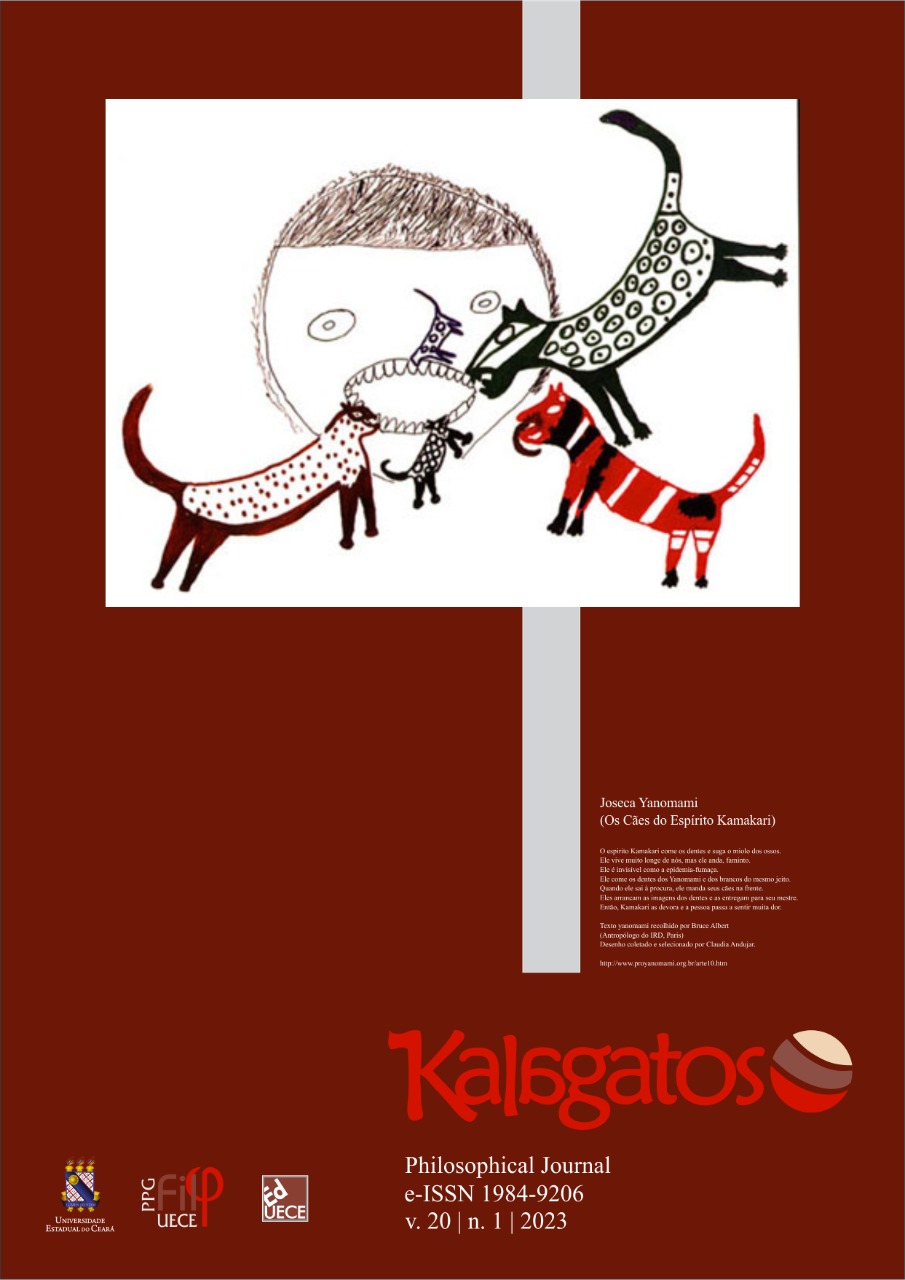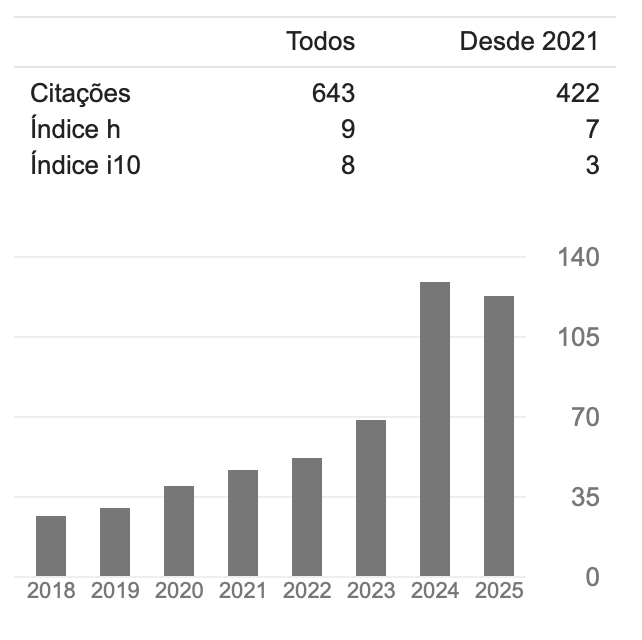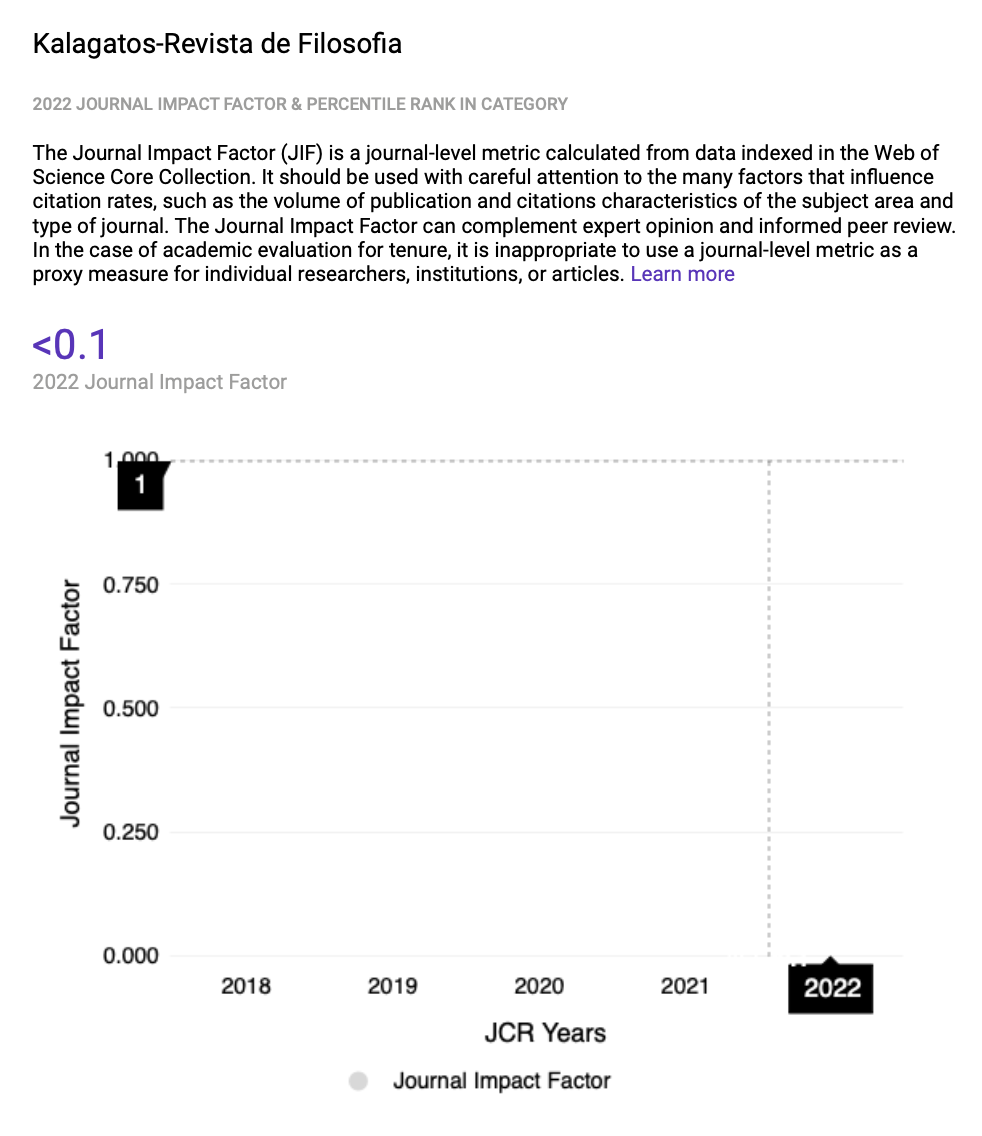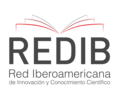Confucius`' moral views and its hitorical values
Palavras-chave:
ethics, Confucius, historical valuesResumo
O pensamento moral de Confúcio não foi criado por acaso, mas decorreu das características e exigências da sociedade chinesa no período da primavera e outono. A realidade social desse período colocou uma série de problemas prementes, obrigando os pensadores a prestar atenção e explicar. Em particular, a questão pendente é como estabilizar a ordem social e educar a moral das pessoas, transformar a sociedade de "desordem" em "paz", pessoas de "sem moral" em "ter" moralidade. Para esclarecer esta questão, o artigo se concentrará em esclarecer questões como: Visões sobre a ética e o papel da ética; Relações morais na sociedade; Padrões éticos; Métodos de educação moral para as pessoas na sociedade. A partir dessas questões, o artigo extrairá valores históricos do ponto de vista moral de Confúcio.
Downloads
Referências
CHAN WT. (1969). A source book in Chinese philosophy. New Jersey: Princeton University Press
CHIN, A. (2007). The authentic Confucius: A life of thought and politics. Simon and Schuster.
DUNG, V. V. (2022). The Unity between Politics and Moral Education in the View of the Philosophers of Xian Qin Confucian, Journal of Educational and Social Research, Vol 12 No 4, Pp. 258-266. https://doi.org/10.36941/jesr-2022-0111.
DUNG, V. V. (2019). Political thought of the Pre-Qin Dynasty and its value. Publishing house. Political Theory, Hanoi.
FAN, Y. (The Northern and Southern Dynasties) (Edited and annotated by SiMa, B. (Jin Dynasty) & Li, X. (Tang Dynasty)) (1965) Houhan shu [A Book on the history of the post-Han Dynasty, Volume 7] (Beijing, Zhonghua Book Company).
FAN, K. K., & LI, X. H. (2020). Taking Lacquer as a Mirror, Expressing Morality via Implements: A Study of Confucian Ritual Spirituality and the Concept of Consumption in the Ming and Qing Dynasties. Religions, 11(9), 447. https://doi.org/10.3390/rel11090447
FENG, C. (2016). A new examination of Confucius’ Rectification of Names. Journal of Chinese Humanities, 2(2), 147-171.
FENGYAN, W. (2004). Confucian thinking in traditional moral education: Key ideas and fundamental features. Journal of Moral Education, 33(4), 429-447. https://doi.org/10.1080/0305724042000327984
FREDERICKSON, H. G. (2002). Confucius and the moral basis of bureaucracy. Administration & Society, 33(6), 610-628. https://doi.org/10.1177/0095399702336002.
GILLESPIE, A. R. (1963). A source book in Chinese philosophy (Vol. 141). Greenwood Publishing Group.
HARDY, G. (1993). The reconstruction of ritual: Capping in ancient China. Journal of Ritual Studies, 69-90.
HU, P. S. (1996) Xiaojing yizhu [Translated notes on The Book of Filial Piety], (Beijing, Zhonghua Book Company).
HSU, N. (2021). Dressing as a Sage: Clothing and Self-cultivation in Early Confucian Thought. Dao, 20(4), 567-588.
IVANHOE, P. J. (2000). Confucian moral self cultivation. Hackett Publishing.
JIA, J. (2021). From Ritual Culture to the Classical Confucian Conception of Yì. Dao, 20(4), 531-547.
JIANG, H. & QIAN, Z.W. (1990) Jinguwen shangshu quanyi [A complete translation of The Book of History in the Xia, Shang and Zhou Dynasties] (Guiyang, Guizhou People's Press).
JUNG, J. (2019). Ritualization of affection and respect: Two principles of Confucian ritual. Religions, 10(3), 224. https://doi.org/10.3390/rel10030224
KIM, H. (2019). Confucianism Before Confucius: The Yijing and the Rectification of Names. Journal of Chinese Philosophy, 46(3-4), 161-181. https://doi.org/10.1111/1540-6253.12384
LEYS, S. (1997). The analects of Confucius (translation and notes). New York: Norton.
LI, J. D. (Ed.) (1994) Zhuzi yulei [Quotations from Zhu Xi] (Beijing, Zhonghua Book Company).
LUO, G. J. (Ed.) (1995) Zhongguo chuantong daode [Chinese traditional morality] (Beijing, Chinese People University Press).
PENG, L. (2017). Enlightenment Meaning of Confucian’s Life Etiquette 儒家人生禮儀中的教化意涵. Journal of Guangxi University (Philosophy and Social Science) 39: 1–7, 29.
PING, Z. (2012). Study on Moral Function of Coming-of-Age Rites 成年儀式的德育功能研究. Tianjin: Nankai University Press.
STEINKRAUS, W. E. (1980). Socrates, Confucius, and the rectification of names. Philosophy East and West, 30(2), 261-264. https://doi.org/10.2307/1398850.
TSAI, D. F. (2005). The bioethical principles and Confucius’ moral philosophy. Journal of medical ethics, 31(3), 159-163.
WANG, J. (2016). The Ideal and Practice of Traditional Chinese Initiation Rites 中國古代“成人儀式”的理想與實踐. Folk Culture Forum, 39–54.
WANG, S. R. (Ming Dynasty) (1996) Yangming quanji [The collected works of Wang Shouren] (Beijing, Hong Qi Press).
WEI-MING, T. (2005). Cultural China: The periphery as the center. Daedalus, 134(4), 145–167. https://doi.org/10.1162 /001152605774431545.
WU, Y., Liang, H. E., SHEN, Y., & JIANG, Q. (2022). The Ritualization of Classic Confucian Spirit of Jing (Reverence and Respect): Evidence from Traditional Chinese Capping Ritual. Religions, 13(10), 989. https://doi.org/10.3390/rel13100989
YANG, B. J. (1960) Mengzi yizhu [Translated notes on Mencius] (Beijing, Zhonghua Book Company).
YANG, B. J. (1980) Lunyu yizhu [Translated notes on The Analects of Confucius], (Beijing, Zhonghua Book Company).
YANG, K. (1999). History of Western Zhou 西周史. Shanghai: Shanghai People’s Publishing House.
YUHAN, X. I. E., & CHEN, G. E. (2013). Confucius’ thoughts on moral education in China. Cross-Cultural Communication, 9(4), 45-49. http://dx.doi.org/10.3968/j.ccc.1923670020130904.2659
YUM, J.O. (1987). Korean philosophy and communication. In KINCAID, D.L. (Ed.), Communication theory: Eastern and Western perspectives (pp. 71-86). New York: Academic Press.
ZHOU, Z. F. (1991) Zhouyi yizhu [Translated notes on The Zhou Book of Changes] (Beijing, Zhonghua Book Company).
ZHU, B. (Qin Dynasty) (Edited and annotated by RAO, Q. N.) (1996) Liji xunzhuan [Textual research on the implications of The Book of Rites] (Beijing, Zhonghua Book Company).
Downloads
Publicado
Como Citar
Edição
Seção
Licença
Copyright (c) 2023 Dung Vo Van

Este trabalho está licenciado sob uma licença Creative Commons Attribution 4.0 International License.



















